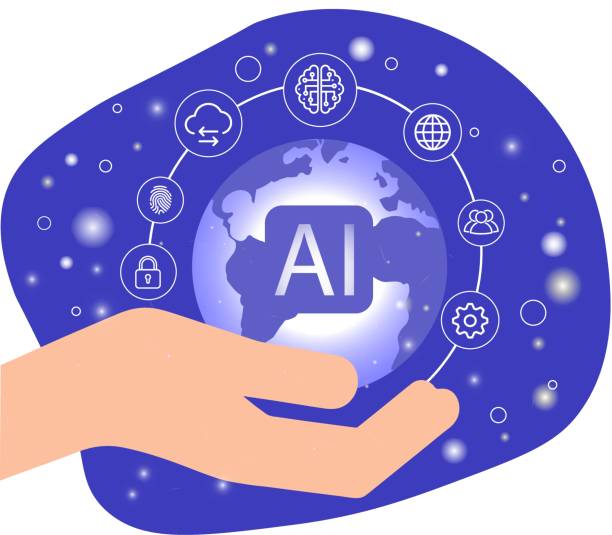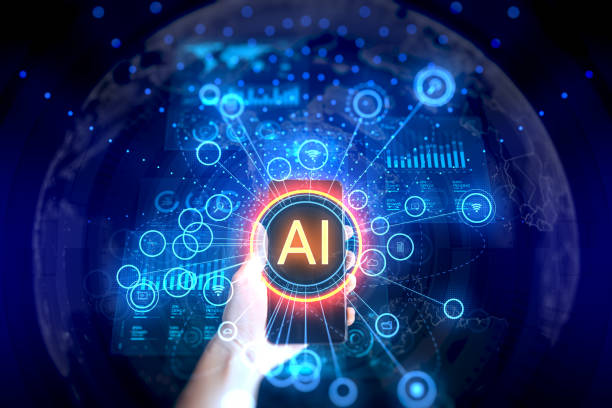Introduction to Artificial Intelligence and the Job Market Revolution
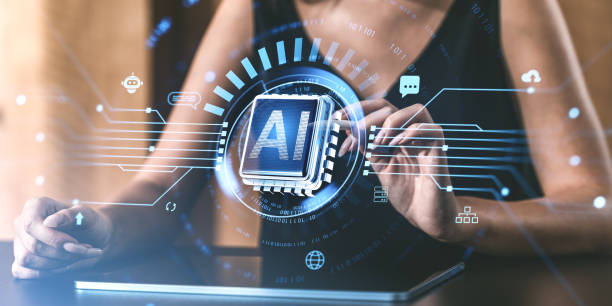
In the opening pages of this article, we delve into Artificial Intelligence (#AI) and its extensive impacts on the global #job_market.
This novel technology has not only provided new tools for increasing productivity but has also fundamentally altered the nature of jobs.
The discussion about the future of AI careers is no longer mere speculation, but a reality that must be faced and prepared for.
A correct understanding of AI’s potential and its challenges for the workforce is of vital importance.
This transformation necessitates #new_training and a redefinition of skills so that individuals can adapt themselves to the #new_needs_of_the_job_market.
From manufacturing industries to healthcare and financial services, no sector has been spared from this upheaval.
This section is an analytical and explanatory content aiming to provide an overview of the current situation and the path AI has set before #jobs.
The main question is how to leverage this transformation for individual and social development, rather than merely viewing it as a threat to job opportunities.
We should view Artificial Intelligence as a catalyst for creating more complex and creativity-based jobs.
This approach requires a shift in perspective from repetitive tasks towards complex problem-solving and decision-making.
The discussion about what the future of AI careers will look like includes examining this technology’s role in creating new values and emerging markets.
Investing in training and educating a specialized workforce in AI-related fields is the key to success in this era.
This includes learning programming skills, data analysis, and even AI ethics.
We are entering an era where human-machine collaboration will offer a new definition of productivity.
Leveraging #AI_capabilities in various industries not only helps improve performance but also leads to #structural_transformation in organizations.
These changes include process automation, big data analysis for better decision-making, and the creation of personalized products and services.
Predictions indicate that despite the disappearance of some traditional jobs, new job opportunities centered around the design, development, maintenance, and supervision of AI systems will emerge.
These opportunities require skills beyond mere technical knowledge; skills such as critical thinking, complex problem-solving, and the ability to work collaboratively with AI systems.
To better understand the future of AI careers, we must note that #adaptability and #lifelong_learning will become the most important individual assets in this era.
This section sets the stage for a deeper understanding of more specialized topics in subsequent chapters.
Does your current corporate website present a worthy image of your brand and attract new customers?
If not, transform this challenge into an opportunity with Rasaweb’s professional corporate website design services.
✅ Significantly enhances your brand’s credibility and image.
✅ Paves the way for attracting leads and new customers.
⚡ For free and specialized consultation, contact Rasaweb now!
Current Status of Artificial Intelligence in Various Industries
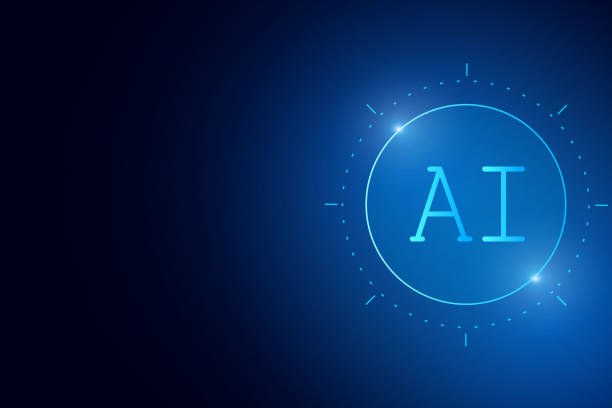
In this section, we address the current status of #AI_adoption in #various_industries and examine its impacts on #existing_jobs.
Artificial intelligence is no longer confined to laboratories; instead, it is widely employed in manufacturing, services, healthcare, finance, and even agriculture.
This trend is important news for anyone who cares about their career future.
Leading companies are making significant investments in automation and advanced algorithms to increase their efficiency and reduce costs.
This means a change in the nature of many routine and repetitive jobs.
For instance, in the manufacturing sector, #intelligent_robots have taken over many physical tasks, and in customer service, #chatbots answer frequently asked questions.
Recent research indicates that Artificial Intelligence is redefining the value chain in many industries.
For example, in #healthcare, AI assists in early disease diagnosis, and in #finance, algorithms assess credit risk with greater accuracy.
These applications demonstrate AI’s immense potential to improve quality of life and increase productivity.
However, at the same time, these changes imply the necessity of reskilling and upskilling for the current workforce.
Individuals who do not adapt their skills to these changes may be at risk of losing their jobs.
Therefore, understanding these transformations is crucial for analyzing the future of AI careers.
This section includes in-depth analyses of current data and market trends.
One of the most important aspects of this situation is the creation of new platforms for human-machine collaboration.
Instead of complete replacement, AI often acts as an assistive tool that allows humans to focus on more complex and creative tasks.
For instance, in graphic design, AI tools can help designers generate ideas and prototypes faster.
In programming, AI assistants generate repetitive code, freeing up the programmer’s time.
This coexistence changes the path of #future_work and how teams are organized.
The future of AI careers is heavily dependent on this coexistence and human ability to collaborate with intelligent systems.
This #analytical situation not only indicates challenges but also provides new opportunities for #emerging_specialties, which we will discuss in detail in subsequent chapters.
Jobs at Risk of Automation and the Need for Reskilling
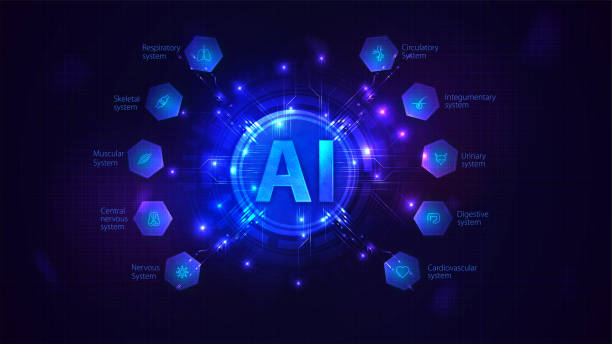
One of the most significant concerns regarding the future of AI careers is identifying jobs most at risk of #automation and replacement by #machines.
This section delves into the thought-provoking content of which tasks and jobs will be affected and why.
Generally, jobs involving repetitive, predictable tasks, requiring low to medium skills, are most at risk.
This includes manufacturing line workers, drivers, some administrative staff, and even some service jobs.
Understanding this issue is a crucial step towards planning for #reskilling and #upskilling.
The question is, can we react to these changes quickly enough?
To clarify this issue, the table below shows some at-risk jobs and their reasons:
| Job Type | Reason for Risk | Suggested Solution |
|---|---|---|
| Production Line Worker | Repetitive tasks, need for high precision | Learning robotics maintenance and programming skills |
| Taxi/Truck Driver | Emergence of autonomous vehicles | Shifting to logistics services or autonomous vehicle maintenance |
| Archivist/Administrative Staff | Automation of office processes | Learning data analysis and digital management skills |
| Telemarketer | Use of chatbots and voice assistants | Transitioning to high-level customer relationship management or marketing analyst |
This is an educational and #explanatory content that helps individuals assess their situation.
The emphasis is that job loss does not mean widespread unemployment, but rather #job_transformation.
Many human tasks are shifting towards activities requiring #creative_thinking, #complex_problem_solving, and #complex_human_interaction.
Therefore, it is important for individuals to prepare for these changes instead of resisting them.
The future of AI careers, more than ever, requires flexibility and readiness for continuous learning.
Governmental and private reskilling programs play a key role in facilitating this transition.
This section is a serious warning, but at the same time, a practical #guide for survival and progress in the era of AI.
It should be noted that entirely new jobs are also emerging, which we will address in the next chapter.
Emerging Job Opportunities with the Advent of Artificial Intelligence
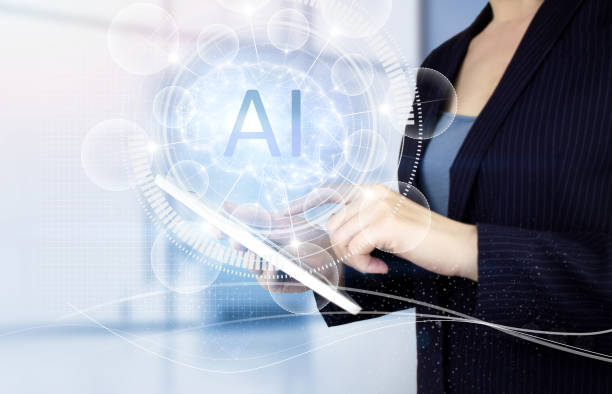
Alongside jobs affected by automation, Artificial Intelligence has also created countless #emerging_job opportunities.
This section introduces and analyzes these #opportunities and how they can completely change the landscape of the future of AI careers.
These jobs are mainly focused on the #specialized areas of development, implementation, maintenance, and supervision of AI systems.
For example, #Machine_Learning_Engineer, #Data_Scientist, #Computer_Vision_Specialist, and #AI_Architect are among the roles for which demand is rapidly increasing.
This section is a specialized and guidance content that helps candidates identify new career paths.
In addition to technical roles, jobs are also emerging in the field of AI ethics, #AI_project_management, and #AI_user_training.
These jobs require a combination of technical and soft skills; including critical thinking, problem-solving, creativity, and effective communication ability.
To succeed in these roles, individuals must be ready for continuous learning and adaptation to evolving technologies.
#Entrepreneurs can also establish successful startups by identifying market needs in this area.
Some of these new jobs include #prompt_engineers who specialize in creating effective instructions for Large Language Models (LLMs).
Or #AI_UX_specialists who are responsible for designing intuitive user interfaces for intelligent systems.
Even jobs like #digital_transformation_consultants who help companies integrate AI into their operations are thriving.
This indicates that the future of AI careers is not just about coding, but about how to think and collaborate with this technology.
These opportunities require new educational courses and a change in approach in educational systems to train the workforce needed for these jobs.
Many universities and educational institutions are reviewing their curricula to meet these needs.
This section is promising and indicates positive prospects for individuals willing to invest in new skills.
Does your current website display your brand’s credibility as it should? Or does it drive away potential customers?
Rasaweb, with years of experience in professional corporate website design, is your comprehensive solution.
✅ A modern, beautiful, and brand-aligned website
✅ Significant increase in lead and new customer acquisition
⚡ Contact Rasaweb now for free corporate website design consultation!
Essential Skills for the Future Job Market
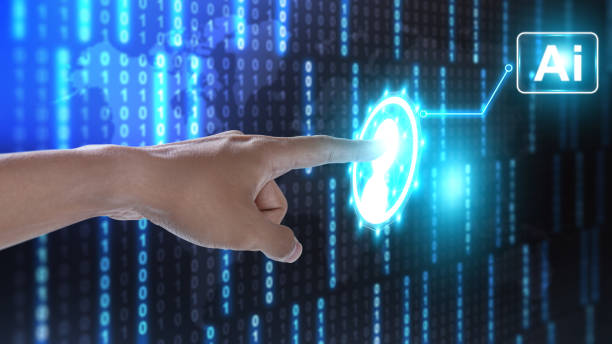
Given the rapid transformations in the #job_market caused by #Artificial_Intelligence, identifying and acquiring #essential_skills for success in the future of AI careers is of paramount importance.
This section, as an educational and #guidance content, elaborates on these skills that go beyond mere technical knowledge.
While hard skills such as Python programming, #machine_learning, #data_analysis, and #understanding_algorithms remain crucial, soft skills have become equally, or even more, important.
Soft skills include #critical_thinking, #complex_problem_solving, #creativity, #innovation, #emotional_intelligence, #teamwork_ability, #effective_communication, and #flexibility.
These skills enable humans to excel in tasks that AI cannot perform.
For instance, while AI can analyze data and recognize patterns, ethical decision-making, negotiation, and team leadership still require human involvement.
To better understand the future of AI careers, it must be considered that humans will play the roles of #overseer, #designer, and #creator of AI systems.
Therefore, developing these composite skills is of particular importance.
This section is a practical guide for individuals on how to prepare for these changes.
Online courses, practical workshops, and real-world projects can help individuals acquire these skills.
Furthermore, companies should invest in their employees’ training_and_development programs to ensure their workforce is ready for future challenges.
The future of AI careers is bright for those willing to commit to #lifelong_learning and #transversal_skills_development.
These skills not only help individuals acquire new jobs but also increase their adaptability to rapid technological changes and make them more resilient in their career paths.
This chapter emphasizes the importance of a holistic approach to skill development.
The Role of Education and Lifelong Learning
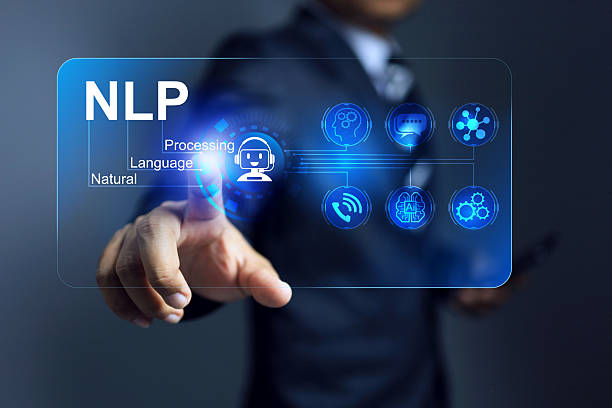
In a world where Artificial Intelligence is rapidly reshaping the #job_market, #education and #lifelong_learning are no longer a choice but a necessity.
This section, as an explanatory and educational content, addresses the importance of the role of educational institutions and individual responsibility in this regard.
Traditional educational systems may face challenges in responding to the rapid pace of AI technological developments.
Therefore, the need for updated_curricula and innovative_teaching_methods is felt more than ever.
Governments and organizations must also invest in developing reskilling programs and online_learning_platforms to facilitate individuals’ access to the necessary training for the future of AI careers.
This includes short-term courses, specialized certifications, and bootcamps that quickly transfer new skills to individuals.
Furthermore, a culture of continuous_learning should be promoted in organizations, so that employees are always updating their knowledge and skills.
This approach helps organizations maintain the necessary flexibility in the face of technological changes and preserve their competitiveness.
The role of #universities will change in this regard; they must transform into #innovation_centers and #applied_research centers that, while training specialized personnel, also respond to industry needs.
Also, #individual_responsibility in learning and #personal_development becomes more prominent.
Every individual should commit to #continuous_learning and seek opportunities to upgrade their skills.
Reading books, articles, participating in webinars, and following experts on social media can all contribute to this.
The future of AI careers will be brighter for those who #actively pursue learning.
This approach not only helps individuals prevent unemployment due to automation but also creates new opportunities for their career and professional advancement.
Ethics and Accountability in the Age of Artificial Intelligence
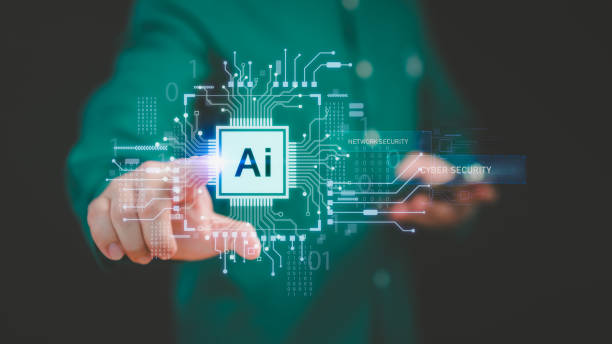
As Artificial Intelligence increasingly integrates into our lives, addressing #ethical_issues and #thought-provoking_content related to it is of paramount importance.
This section, as an analytical and #explanatory content, addresses the ethical challenges and accountability in the age of AI and their impact on the #future of AI careers.
Topics such as #algorithmic_bias, #data_privacy, #transparency in AI decision-making, and #ethical_use of this technology are rapidly becoming central concerns.
New jobs like #AI_ethics_specialist and #algorithm_auditor are emerging to address these challenges.
Understanding these challenges is essential for anyone working in or affected by AI.
For example, if an AI algorithm has bias in the recruitment process, it can lead to discrimination.
Or if an autonomous system malfunctions, who is responsible? These are questions that require collaboration among technical experts, legal professionals, ethicists, and policymakers.
Transparency in how AI systems function and the accountability of developers and users are of particular importance.
The table below shows some ethical considerations and suggested solutions:
| Ethical Consideration | Explanation | Suggested Solution |
|---|---|---|
| Algorithmic Bias | Algorithms may make unfair decisions based on biased data. | Thorough review of training data, development of anti-bias algorithms |
| Data Privacy | Extensive collection and use of personal data. | Compliance with data protection laws (GDPR), data encryption and anonymization |
| Transparency (Explainability) | Difficulty in understanding AI decision-making logic. | Development of interpretable models, logging of algorithm decisions |
| AI Security | Vulnerability of AI systems to cyberattacks. | Improvement of security mechanisms, continuous penetration testing |
This specialized and #guidance approach helps companies and individuals consider ethical frameworks in the development and use of AI.
The future of AI careers is highly dependent on our ability to create a robust and sustainable ethical framework.
This not only includes the development of #ethical_codes but also means creating mechanisms for monitoring and enforcing these principles.
To ensure a sustainable_work_future, AI must align with human values.
This section emphasizes that technological growth must be accompanied by increased accountability.
Artificial Intelligence as a Collaborator, Not a Replacement
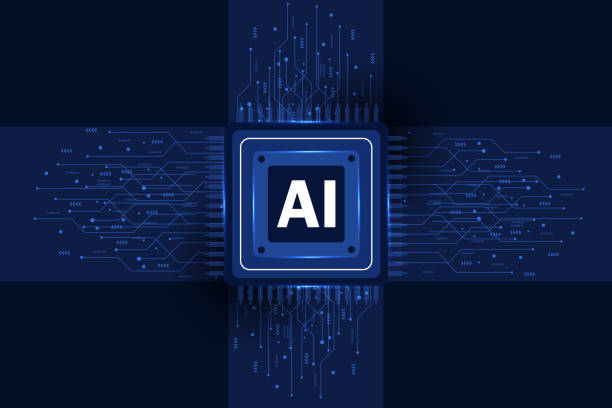
One of the most important paradigm shifts in understanding the #future of AI careers is moving away from viewing #Artificial_Intelligence merely as a replacement and embracing it as a #collaborator.
This section, as an explanatory and engaging content, addresses this concept of how humans and AI systems can work together most effectively, leading to increased productivity and creativity.
This approach, instead of fearing #automation, emphasizes #augmenting_human_capabilities through technology.
In many industries, AI can take on repetitive, time-consuming tasks, or those requiring the analysis of massive volumes of data.
This allows humans to focus on activities requiring #strategic_thinking, #creativity, #emotional_intelligence, and #complex_problem_solving.
For instance, in the medical sector, AI can assist doctors in analyzing medical images or suggesting treatment options, but the final decision and interaction with the patient remain the responsibility of the physician.
This combination of skills leads to better outcomes than when each works alone.
This coexistence is evident not only in large work environments but also in daily life.
Smart voice assistants, online recommendation systems, and AI-powered content creation tools all, in a way, act as our collaborators.
This approach steers the future of AI careers towards jobs where humans and machines complement each other.
This section offers a #positive and #inclusive view of AI’s role and encourages individuals to #collaborate with AI instead of competing against it.
This engaging approach, with real-life examples, demonstrates how AI can assist us in our tasks and allow us to dedicate more time to creative and meaningful activities.
Ultimately, this coexistence means creating new values and developing innovative markets, leading to economic growth and improved quality of life.
Did you know that 94% of first impressions of a company are related to its website design?
Rasaweb, by offering professional corporate website design services, helps you create the best first impression.
✅ Creating a professional and trustworthy image for your brand
✅ Easier attraction of potential customers and improved online presence
⚡ Get free corporate website design consultation
Strategic Planning for Individuals and Organizations

To successfully cope with the #AI-driven transformations in the #job_market, #strategic_planning is essential for both #individuals and #organizations.
This section is a guidance and specialized content that provides practical pathways for preparing for the future of AI careers.
For individuals, this means self-assessing skills, identifying skill gaps, and actively investing in #lifelong_learning.
For example, participating in programming courses, #data_analysis, or #AI_project_management can be very beneficial.
Furthermore, developing soft skills such as #systems_thinking and #adaptability is also crucial.
For organizations, strategic planning involves reviewing business models, investing in AI technologies, and most importantly, developing and reskilling the workforce.
Companies should promote a culture of #innovation and #learning and provide opportunities for employees to acquire new skills.
This may include establishing internal academies, collaborating with educational institutions, or offering incentives for personal_training.
An #analytical approach is important for identifying processes that can be improved with AI, as well as identifying new required roles.
Furthermore, creating interdisciplinary teams that can combine technology and business needs is a key strategy.
Changes in human resource policies are also essential.
HR managers must have a deep understanding of AI’s potential and be able to prepare the workforce for a future where #AI_and_employment are intertwined.
This includes designing new career paths, performance evaluation systems tailored to new skills, and creating a work environment that encourages human-machine collaboration.
The future of AI careers will be brighter for organizations that actively plan in this area and value their employees.
This section emphasizes the importance of a #proactive and #active approach in facing these transformations to make the best use of the opportunities ahead.
Case Studies and Global Trends
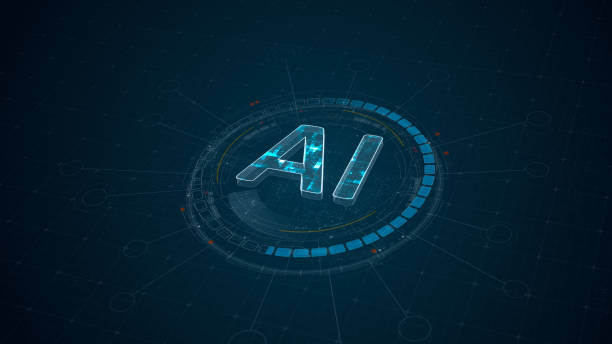
To gain a deeper understanding of the future of AI careers, examining real-world #case_studies and #global_trends that demonstrate how #Artificial_Intelligence impacts #jobs worldwide is highly beneficial.
This section, as a news and analytical content, provides examples from various industries on how AI is redefining roles and creating new opportunities.
For instance, in the United States, companies like Tesla are hiring engineers specializing in #self-driving_cars and #robotics, while in China, tech companies like Alibaba are heavily investing in AI for #e-commerce and #financial_services, creating new job opportunities.
In Europe, the focus is on ethical_AI and regulation, which has led to a demand for specialists in #AI_law and #data_governance.
These examples demonstrate that the future of AI careers is not limited to a specific region or industry but is a global phenomenon that requires a comprehensive approach.
One significant trend is the increasing need for professionals with #interdisciplinary skills; individuals who not only possess technical knowledge but also have a deep understanding of business needs, and the human and ethical aspects of AI.
Furthermore, the growth of #freelancing and #remote_work platforms is also changing the distribution of AI-related job opportunities.
Individuals can offer their skills globally and join various projects worldwide.
This has created new opportunities for individuals living in areas with limited job prospects.
This section also includes data_analysis and authoritative reports from international organizations such as the #International_Labour_Organization (ILO) and the #World_Economic_Forum (WEF) that provide predictions on job changes.
In summary, these case studies show that with proper planning and investment in appropriate skills, one can overcome the challenges of AI and benefit from its countless opportunities.
Frequently Asked Questions
| Question | Answer |
|---|---|
| What impact will AI have on the future job market? | AI will automate repetitive jobs, but at the same time, it will create new and more complex jobs in areas such as the development, maintenance, and training of AI systems. |
| Which jobs are most at risk of being replaced by AI? | Jobs involving repetitive, rule-based tasks with low need for creativity or emotional intelligence, such as some manufacturing jobs, data entry, and simple customer service, are most at risk. |
| What skills are essential for success in future careers with AI? | Skills such as critical thinking, complex problem-solving, creativity, emotional intelligence, data literacy, the ability to work with AI, and lifelong learning are of high importance. |
| Will AI lead to widespread unemployment? | Some jobs will disappear, but history has shown that new technologies, instead of leading to widespread unemployment, reshape the job market and create new jobs. The need for adaptation and retraining is crucial. |
| What new job opportunities emerge with the advent of AI? | Jobs such as Machine Learning Engineer, Data Scientist, AI Ethicist, Human-AI Interaction Designer, and Digital Transformation Consultant are among the new opportunities. |
| What is the role of education in preparing for future careers with AI? | Education must focus on developing soft skills, computational thinking, digital literacy, and the ability for continuous learning to prepare individuals for future changes. |
| How can I prepare myself for AI-driven changes in the job market? | You can prepare yourself by learning new AI and data-related skills, strengthening soft skills, developing critical and creative thinking, and embracing lifelong learning. |
| Will AI ethics become an important career field? | Yes, given the increasing concerns about biases, privacy, and automated decision-making of AI, the role of AI ethics specialists will become crucial for ensuring its responsible development. |
| What is the importance of human-AI collaboration in the future of work? | Human-AI collaboration, rather than competition, will shape the future of the job market. AI can be a tool to increase productivity and allow humans to focus on more complex and creative tasks. |
| Which industries will be most affected by AI? | Virtually all industries will be affected, but sectors such as healthcare, finance, transportation, manufacturing, education, and customer service are pioneers in adopting and transforming through AI. |
And other advertising services from Rasaweb Advertising Agency:
Smart Content Strategy: A combination of creativity and technology to increase sales through the use of real data.
Smart Social Media: A combination of creativity and technology to increase click-through rates by precise audience targeting.
Smart Marketing Automation: A fast and efficient solution for customer acquisition with a focus on custom programming.
Smart UI/UX: A fast and efficient solution for customer acquisition with a focus on attractive user interface design.
Smart Website Development: An effective tool for digital branding by optimizing key pages.
And over a hundred other services in the field of internet advertising, advertising consultation, and organizational solutions.
Internet Advertising | Advertising Strategy | Advertorials
Resources
AI on Digiato, AI News on Zoomit, AI Developments IRNA, Future of AI Careers Donya-e-Eqtesad
? Are you ready for your business to grow in the digital world? Rasaweb Afarin Digital Marketing Agency, specializing in SEO, content marketing, and e-commerce website design, paves your path to success.
📍 Tehran, Mirdamad Street, next to Bank Markazi, Southern Kazeroon Alley, Ramin Alley, No. 6


